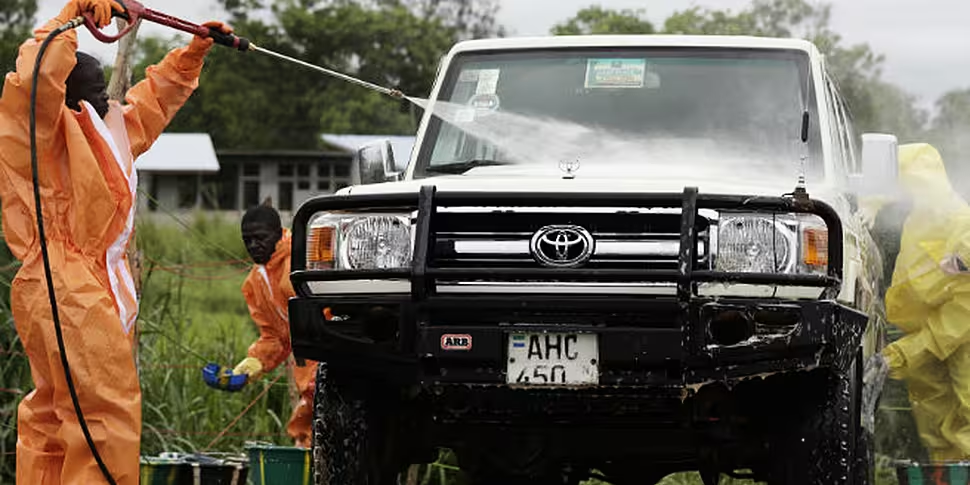The World Health Organisation has declared Sierra Leone "Ebola-free".
The West African country was given the all-clear after 42 days without any new infections.
The world's worst recorded outbreak of the virus has killed more than 11,000 people in west Africa since December 2013.
More than 3,500 of those died from the disease in Sierra Leone.
However Nurse Isatu Mansaray is cautious of celebrating this latest milestone:
Jane-Ann McKenna, Director of Médecins Sans Frontières (MSF) in Ireland said, “we are happy to see that no Ebola cases have been reported in Sierra Leone in the past 42 days, and we congratulate the Sierra Leonean authorities and their partners for having contained the outbreak".
However she added that "there are an estimated 15,000 Ebola survivors in West Africa, many of whom have ongoing physical and mental health problems. The physical problems include joint pain, chronic fatigue, hearing difficulties and eye problems, which could lead to blindness without prompt access to specialised care".
British nurse Pauline Cafferkey contracted the disease after treating patients in Sierra Leone at the height of the outbreak.
Following her initial recovery, she is being treated in hospital after falling ill again with meningitis, caused by a re-emergence of the virus.
Sierra Leone being declared free of the disease will be a huge relief according to Dr Tumba Junior, a doctor with the charity GOAL based at its treatment centre in Port Loko.
"Everyone is celebrating but we have to keep in mind that we must be careful," he said.
"We could still have positive cases after this period."
Outbreak
It is 18 months since the outbreak began in West Africa, killing more than 11,000 of the 28,500 people known to have been infected.
The fear of Ebola has left communities living under a cloud of anxiety and mistrust, unsure where the virus would strike next.
Liberia was declared free of Ebola in September but Guinea is still seeing some new cases.
On the border with Sierra Leone, no chances are being taken and health checks at the crossing in Kambia are mandatory.
Otim Patrick, field co-ordinator for the World Health Organisation at the site, said it is crucial not to "let your guard down".
"You can have a case and it takes you back to zero," he said.
"For a district like Kambia, which is at the border with Guinea, and with Guinea still having active transmission... they just had a case reported a day ago.
"It's important that we maintain the level of vigilance so that complacency does not take us back to square one."
At its worst hundreds of new cases were reported every week across West Africa.
Those caring for the sick left no part of their body uncovered if given the chance but too often the vital protection was not available.
The outbreak has fuelled medical advances that have seen new vaccines and drugs being developed.
But for many of the 17,000 survivors there are health complications to deal with.
Head nurse Isatu Mansaray at the Port Loko centre said: "So many of them complain of deafness.
"So many of them complain of joint pains... so much being stigmatised by the community so we really need psycho-social therapies.
"So many have lost many members of their family, like 10 or 15 members of the family."
For the next 90 days, Sierra Leone will be under a heightened state of surveillance to make sure the virus is gone for good.









